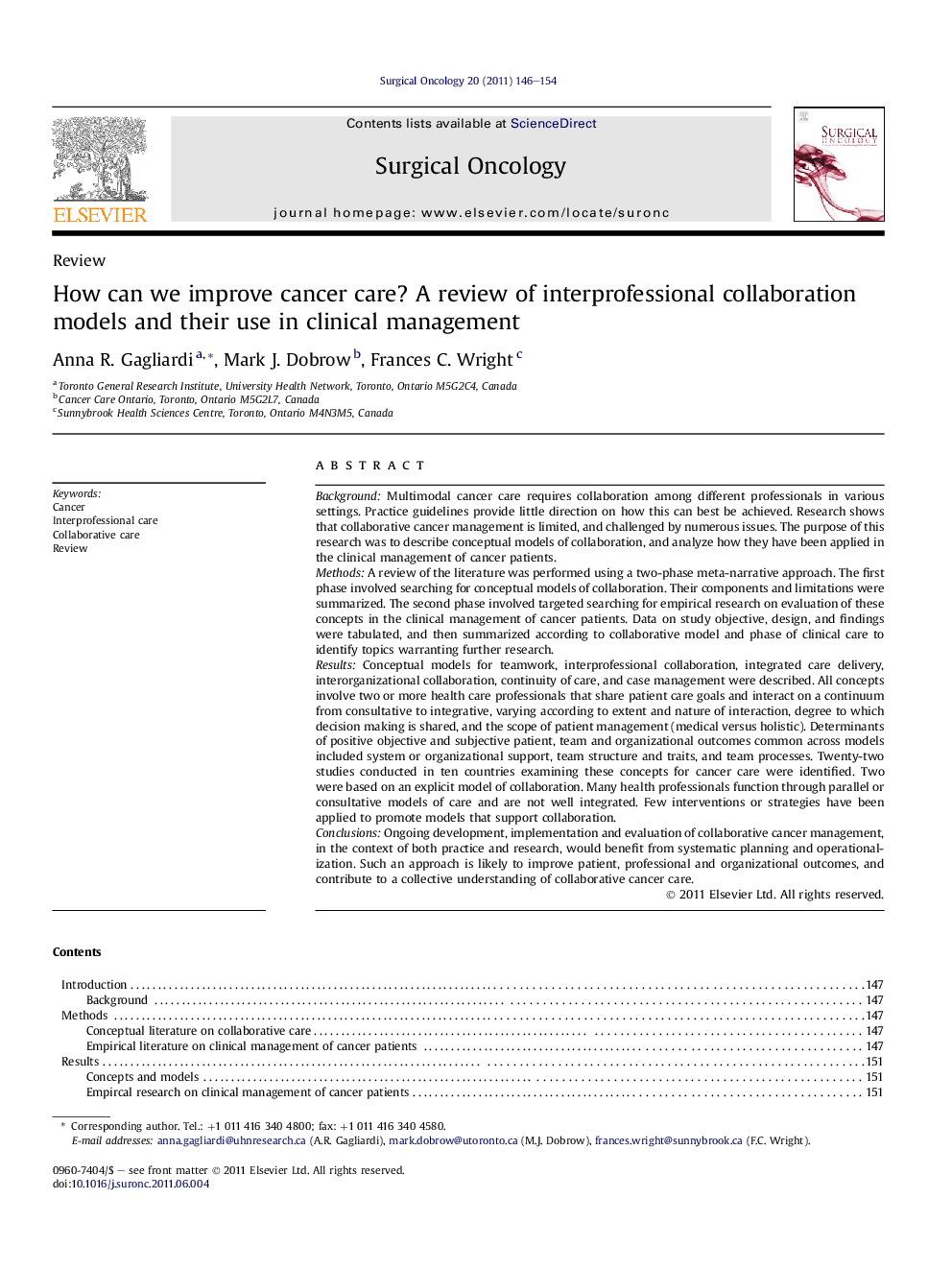| کد مقاله | کد نشریه | سال انتشار | مقاله انگلیسی | نسخه تمام متن |
|---|---|---|---|---|
| 3997972 | 1259186 | 2011 | 9 صفحه PDF | دانلود رایگان |

BackgroundMultimodal cancer care requires collaboration among different professionals in various settings. Practice guidelines provide little direction on how this can best be achieved. Research shows that collaborative cancer management is limited, and challenged by numerous issues. The purpose of this research was to describe conceptual models of collaboration, and analyze how they have been applied in the clinical management of cancer patients.MethodsA review of the literature was performed using a two-phase meta-narrative approach. The first phase involved searching for conceptual models of collaboration. Their components and limitations were summarized. The second phase involved targeted searching for empirical research on evaluation of these concepts in the clinical management of cancer patients. Data on study objective, design, and findings were tabulated, and then summarized according to collaborative model and phase of clinical care to identify topics warranting further research.ResultsConceptual models for teamwork, interprofessional collaboration, integrated care delivery, interorganizational collaboration, continuity of care, and case management were described. All concepts involve two or more health care professionals that share patient care goals and interact on a continuum from consultative to integrative, varying according to extent and nature of interaction, degree to which decision making is shared, and the scope of patient management (medical versus holistic). Determinants of positive objective and subjective patient, team and organizational outcomes common across models included system or organizational support, team structure and traits, and team processes. Twenty-two studies conducted in ten countries examining these concepts for cancer care were identified. Two were based on an explicit model of collaboration. Many health professionals function through parallel or consultative models of care and are not well integrated. Few interventions or strategies have been applied to promote models that support collaboration.ConclusionsOngoing development, implementation and evaluation of collaborative cancer management, in the context of both practice and research, would benefit from systematic planning and operationalization. Such an approach is likely to improve patient, professional and organizational outcomes, and contribute to a collective understanding of collaborative cancer care.
Journal: Surgical Oncology - Volume 20, Issue 3, September 2011, Pages 146–154